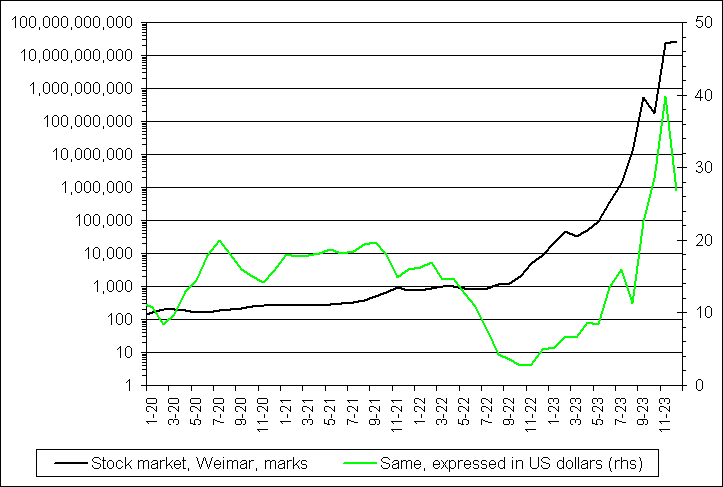Re: Effects of Demographic Shift and Baby Boomers
It is good to come closer to agreement, Finster!
To discuss further, however, I don't think bond yields or dividend yields have had much to do with classic economics in these early years of the 21st century. Bond yields remain irrationally low compared to the inflation we have because of the two way combination of the central banks keeping investment banks flooded with liquidity, and countries such as China using Treasury purchases to prop up the dollar as they grow their own economy.
Incidentally, am I correct that you were implying that bond and dividend yields could return to a more normal relationship through bond yields coming down? That is only one alternative, call it the bull market alternative. The alternative scenario, is stock dividend yields skyrocketing, as the result of some most unfortunate price movements...
Originally posted by Finster
To discuss further, however, I don't think bond yields or dividend yields have had much to do with classic economics in these early years of the 21st century. Bond yields remain irrationally low compared to the inflation we have because of the two way combination of the central banks keeping investment banks flooded with liquidity, and countries such as China using Treasury purchases to prop up the dollar as they grow their own economy.
Incidentally, am I correct that you were implying that bond and dividend yields could return to a more normal relationship through bond yields coming down? That is only one alternative, call it the bull market alternative. The alternative scenario, is stock dividend yields skyrocketing, as the result of some most unfortunate price movements...

Comment